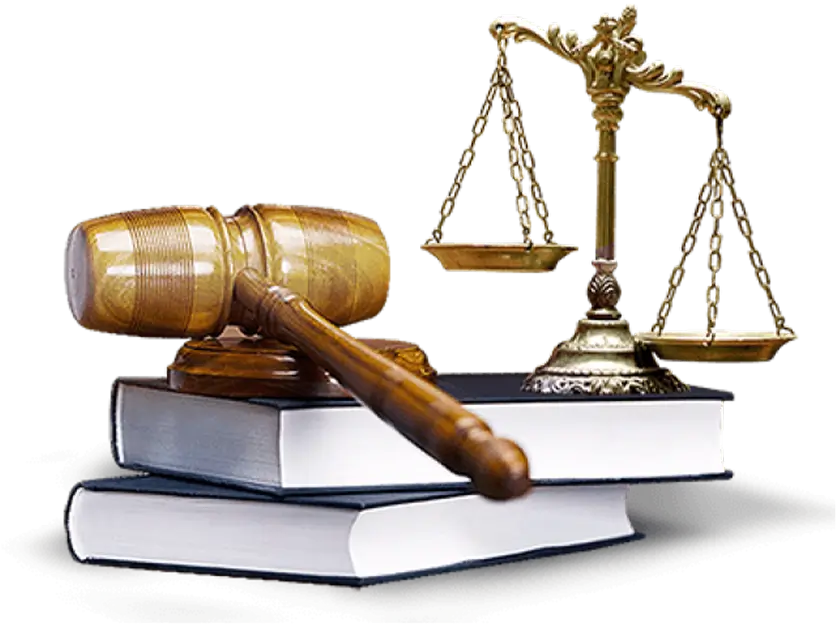Supporting Lawyers in Crisis with Care and Confidentiality
When a Lawyer You Know is in Distress
The pressure and pace of legal practice can lead to burnout, depression, and substance misuse. If you notice a lawyer struggling, JCJ offers the support and resources needed to guide them toward recovery confidentially and respectfully.
Lawyers in distress often experience changes in behavior that may affect their ability to serve clients or appear in your courtroom. Early intervention increases the likelihood of a successful recovery and helps protect both personal well-being and professional responsibilities. JCJ staff can help you create an approach that encourages the lawyer to accept support without shame or confrontation.

Compassionate Intervention and Support for the Legal Community
JCJ understands the sensitive nature of approaching a lawyer in distress. We help you develop a calm, informed plan that prioritizes the lawyer’s privacy, your comfort, and the ultimate goal of helping them find their way back to wellness.
-
Confidential conversations with knowledgeable staff
-
Assistance in planning an effective and respectful approach
-
Free educational materials and resources for you and the lawyer involved
-
Guidance from professionals experienced in legal community challenges
-
Motivational intervention support to encourage engagement
-
Referrals for confidential evaluations by licensed providers

Trusted by the Legal Community
Here’s what some of them have shared.
“JCJPA is not just for drugs and alcohol, but any life event that may interfere with a judge’s ability to work effectively. In my case, I was deeply affected when a disgruntled litigant launched a public attack of my decision in a family law case. JCJPA arranged counseling for me so I could process this criticism, regain perspective, and move forward in my career on the bench. JCJPA also connected me with a colleague from another county who had a similar experience and could give me support and advice. These resources were invaluable. I will be forever grateful for JCJPA. ”
“I noticed myself slipping into anxiety and exhaustion, but I didn’t know how to ask for help. JCJPA reached out with understanding and discretion, providing support that felt both safe and practical. They helped me navigate my stress without judgment. I feel stronger and thankful that JCJPA exists.”
“Being a judge doesn’t make you immune to stress or burnout. I struggled quietly, worried about being seen as weak. Reaching out to JCJPA was the turning point. They provided confidential support without judgment and helped me understand my feelings. I feel more balanced now and deeply appreciate that JCJPA is available.”


Understanding the Barriers to Seeking Support
Despite their role in solving others’ problems, many lawyers struggle to recognize or accept their own need for help. Changes in brain chemistry caused by mental illness or substance use can cloud judgment and self-awareness. Fear of stigma, professional consequences, or loss of reputation often prevent lawyers from reaching out even when they know something is wrong. This is where you can help by noticing the signs and guiding them toward safe and supportive resources.

Frequently Asked Questions
What is My Duty to Report? What About Confidentiality?
We are a self-regulating profession with a duty to promote the administration of justice and preserve the integrity of the organized Bench and Bar. Canon 2 of the Pennsylvania Code of Judicial Conduct indicates that “appropriate action” must be taken if impairment of a lawyer or judge is suspected. Such action may include referral to a lawyer or judicial assistance program (such as Lawyers Concerned for Lawyers or Judges Concerned for Judges):
Rule 2.14 Disability and Impairment
“A judge having a reasonable belief that the performance of a lawyer or another judge is impaired by drugs or alcohol, or by a mental, emotional, or physical condition, shall take appropriate action, which may include a confidential referral to a lawyer or judicial assistance program. Comment:
(1) ‘‘Appropriate action’’ means action intended and reasonably likely to help the judge or lawyer in question address the problem and prevent harm to the justice system. Depending upon the circumstances, appropriate action may include but is not limited to speaking directly to the impaired person, notifying an individual with supervisory responsibility over the impaired person, or making a referral to an assistance program.
(2) Taking or initiating corrective action by way of referral to an assistance program may satisfy a judge’s responsibility under this Rule. Assistance programs have many approaches for offering help to impaired judges and lawyers, such as intervention, counseling, or referral to appropriate health care professionals. Depending upon the gravity of the conduct that has come to the judge’s attention, however, the judge may be required to take other action, such as reporting the impaired judge or lawyer to the appropriate authority, agency, or body.”
You may be faced with the decision of whether or not to report an attorney’s professional misconduct to disciplinary authorities. Although JCJ cannot advise you in these matters, we can put you in touch with an ethics lawyer who can assist you in making an informed decision about whether or not to report. JCJ does not report its callers or clients to any agency, nor do we perform drug or alcohol testing or monitoring. Our assistance is confidential.
Dangerous Myths that Keep People Sick
- Judges are immune from mental health or substance use issues.
- Addiction is a ‘moral’ issue.
- It will get better eventually.
- Just cheer up and get over it. He or she can ‘will’ themselves out of it.
- It is none of my business. If their conduct does not affect me or my courtroom, it is not my problem.
- If I approach my colleague, I will jeopardize my relationship with him or her.
- We should not discuss these matters for fear of ruining my colleague’s reputation and career.
Do not sit idly by while a colleague’s struggles harm their health and professionalism.
The only ‘wrong’ thing you can do is nothing!
Concerned About a Lawyer? Let’s Talk About It
If a lawyer you know is showing signs of distress, you don’t have to navigate the situation alone. JCJ is ready to help you create a thoughtful and supportive path forward privately, respectfully, and without pressure.

Get in Touch Confidentially and Quickly
Reach out to us securely and in confidence. Whether you’re seeking support for yourself or referring someone else, we’re here to help.
All messages are reviewed by JCJPA’s trained staff and responded to during regular business hours, Monday through Friday.
If you need immediate assistance, please call our 24/7 helpline at 1-888-999-9706. Help is always available.

